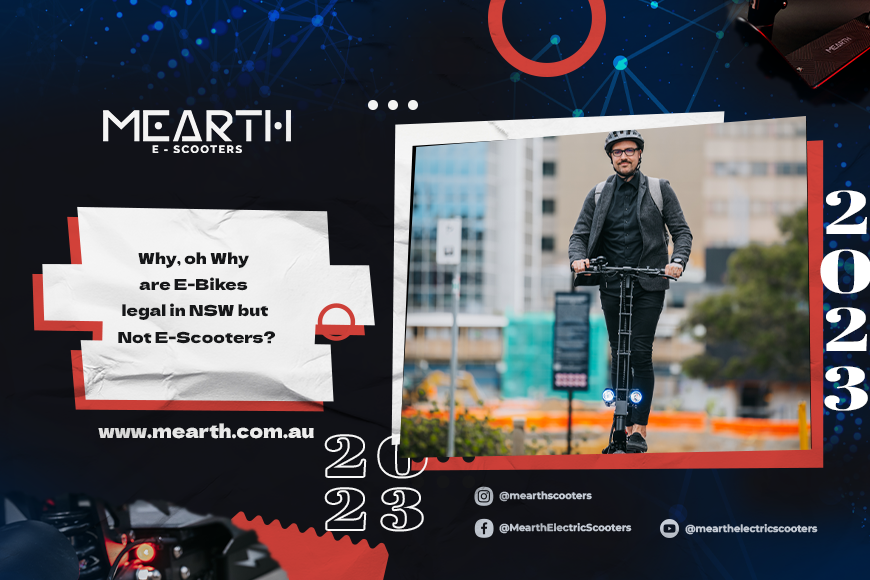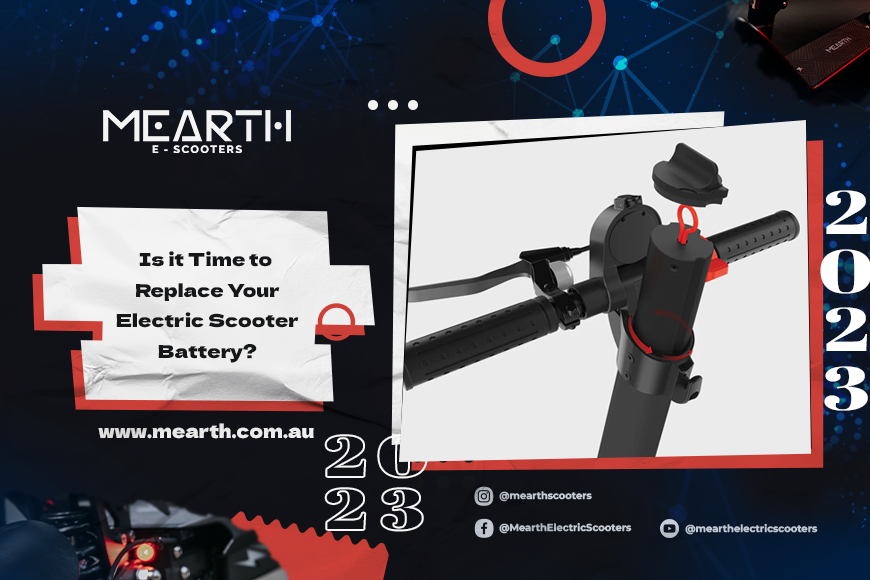
This has been a long-drawn out issue – electric bikes versus electric scooters. The first is legal and the other, illegal. This is in reference to being allowed, or not allowed to be ridden on public roads.
For clarity, let’s begin again. By definition, the electric scooter is a motorized two-wheel powered vehicle and as such, it is technically categorized as a personal light electric vehicle (PEV) or personal mobility device (PMD), and therefore unlike the e-bike, it is classed as a motor vehicle under the road traffic legislation.
Again. Why do they differ from electric bikes? Aside from the fact that these electric scooter for adults don't have pedals, they are classed as motor vehicles, in accordance to the road traffic laws.
According to NSW authorities, bicycles that meet the requirements for permitted e-bikes can be used on public roads and road-related areas. On the other hand, petrol-powered bicycles and other powered bicycles that do not meet the e-bike requirements outlined below are illegal and may only be used on private property.
The Australian Government updated the requirements for permitted e-bikes on July 1, 2021. These changes include introducing a weight limit and seat requirements for power-assisted pedal cycles and clarifying that bikes CANNOT be solely propelled by the motor.
What are the e-bike requirements? The permitted e-bikes are power-assisted pedal bicycles and electrically power-assisted bicycles.
These two types must be designed to be propelled primarily by the rider – they CANNOT be propelled exclusively by the motor. The motor is intended to help the rider, specifically when going uphill or riding into a headwind. It is the same with an electrically power-assisted cycle. It must have a maximum continued rated power of 250 watts only.
Said vehicles are legal on NSW roads, as long as they comply with the applicable vehicle standards, are registered, and are ridden by duly licensed riders. So far, there are no major issues that bear a negative blow where e-bikes are concerned.
All petrol-powered bicycles however, are illegal on NSW roads and other road-related areas such as footpaths, shared paths, cycle ways and cycle paths, and this would also include bicycles that have a petrol-powered engine attached to it either before or after purchase.
Because petrol-powered bicycles are faster than regular bicycles, they can be compared with small motorcycle speeds. Furthermore, petrol-powered bicycles have regular bicycle brakes that are not designed for the higher speeds. It has been determined that petrol-powered bicycles also take much longer to stop than the regular bicycles and this increases the risk of a crash that can seriously injure or fatally harm the rider, and other road users or pedestrians.
Back to the perennial question. Why, oh why are electric scooters illegal in NSW? The answer is because these two-wheeled devices, otherwise called electric scooters don't always have visible rear red lights, number plates or signalling ability, so they can't be used legally on roads and thoroughfares. As such, private electric scooters can only be used on private land and not on public roads, cycle lanes or pavements. Electric scooters are banned from roads in NSW, Victoria, South Australia, Western Australia and the Northern Territory. Helmets must be worn and scooters must be rented from private providers.
In NSW, since electric scooters are classified as motorized vehicles under 240(2)(c) of the NSW Road Rules 2014, this means, they are banned from the road “at any time while any person travelling in or on the device is wholly or partly assisted in propelling the device by means other than human power”. A penalty of up to $2,200 applies.
The e-scooter trials on rented e-scooters in NSW is still ongoing, and even then, it’s about shared electric scooters (electric scooters for hire by private companies). After much protest and lobbying, in July 2022 the NSW government announced a trial of rented electric scooters in four Sydney parks, to be extended to council areas. The said trial is to last 12 months and will be limited to riders aged 16 and over. Riders can travel up to 20 kph on cycle paths or on roads which have a speed limit of 50 kph, and up to 10 kph on shared paths.
To date, privately owned electric scooters are still banned. Clearly, the fate of private e-scooters still hangs – but hopefully, patience wins. Enjoining private electric scooter owners, continue to push for a favorable change. Nothing is impossible.




Leave a comment
This site is protected by hCaptcha and the hCaptcha Privacy Policy and Terms of Service apply.